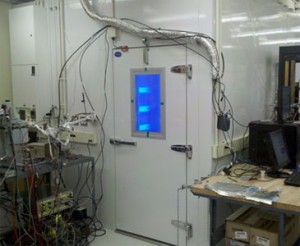Research Spotlight:
Atmospheric organic chemistry
The oxidation of organic compounds in the atmosphere leads to the formation of ozone, fine particulate matter, and hazardous air pollutants. Despite their importance, these oxidation processes are generally poorly understood due to their high chemical complexity. The Kroll group is therefore developing new ways to probe organic oxidation mechanisms in the laboratory. Examples include “aging” organics by exposing them to high concentrations of oxidants, zeroing in on individual reaction steps by generating organic radicals in the absence of any oxidants at all, and limiting oxidation to Individual phases.
Learn more about the Kroll group’s research here.



